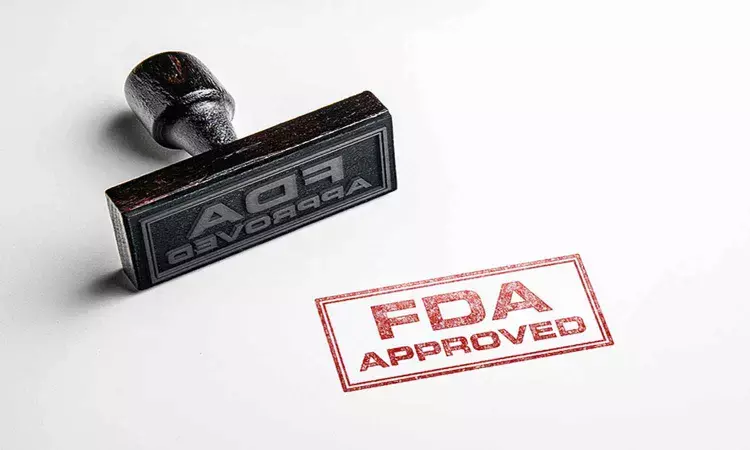- Home
- Medical news & Guidelines
- Anesthesiology
- Cardiology and CTVS
- Critical Care
- Dentistry
- Dermatology
- Diabetes and Endocrinology
- ENT
- Gastroenterology
- Medicine
- Nephrology
- Neurology
- Obstretics-Gynaecology
- Oncology
- Ophthalmology
- Orthopaedics
- Pediatrics-Neonatology
- Psychiatry
- Pulmonology
- Radiology
- Surgery
- Urology
- Laboratory Medicine
- Diet
- Nursing
- Paramedical
- Physiotherapy
- Health news
- Fact Check
- Bone Health Fact Check
- Brain Health Fact Check
- Cancer Related Fact Check
- Child Care Fact Check
- Dental and oral health fact check
- Diabetes and metabolic health fact check
- Diet and Nutrition Fact Check
- Eye and ENT Care Fact Check
- Fitness fact check
- Gut health fact check
- Heart health fact check
- Kidney health fact check
- Medical education fact check
- Men's health fact check
- Respiratory fact check
- Skin and hair care fact check
- Vaccine and Immunization fact check
- Women's health fact check
- AYUSH
- State News
- Andaman and Nicobar Islands
- Andhra Pradesh
- Arunachal Pradesh
- Assam
- Bihar
- Chandigarh
- Chattisgarh
- Dadra and Nagar Haveli
- Daman and Diu
- Delhi
- Goa
- Gujarat
- Haryana
- Himachal Pradesh
- Jammu & Kashmir
- Jharkhand
- Karnataka
- Kerala
- Ladakh
- Lakshadweep
- Madhya Pradesh
- Maharashtra
- Manipur
- Meghalaya
- Mizoram
- Nagaland
- Odisha
- Puducherry
- Punjab
- Rajasthan
- Sikkim
- Tamil Nadu
- Telangana
- Tripura
- Uttar Pradesh
- Uttrakhand
- West Bengal
- Medical Education
- Industry
New drug receives Orphan Drug Designation for Phenylketonuria treatment from FDA

BALERNA - The US Food and Drug Administration (the "FDA") has granted Orphan Drug Designation for the Company's drug candidate APR-OD031 for the treatment of Phenylketonuria ("PKU").APR Applied Pharma Research s.a. ("APR"), a Swiss pharma company has received the approval.
PKU (Phenylketonuria) is an inherited, recessive, metabolic disorder caused by a deficiency of the enzyme phenylalanine hydroxylase ("PAH"). In most of the countries worldwide, PKU occurs in 1 in 10,000 to 1 in 15,000 new born babies, according to the National Human Genome Research Institute
APR-OD031 is an extended release amino acid mix engineered with a patented drug delivery technology enabling to secure physiological absorption of the delivered amino acids. This is the first mix of amino acids having a pharmacological primary mode of action designed to reduce and control Phenylalanine ("Phe") fluctuations and muscle proteolysis by reducing catabolic episodes in PKU Patients, especially Classic PKU Patients not responding to Sapropterin.
"The Orphan Drug Designation for our drug candidate APR-OD031 is a huge achievement for a small company like APR, which is focusing its efforts on the improvement of PKU standard of care. Together with the other orphan drug designation granted 6 months ago, APR is strengthening its position as a patient centric company dedicated to major unmet needs in the rare disease space," said Paolo Galfetti, CEO of APR. "As father of a PKU boy and as professional in this industry, I feel the privilege and the honor for leading a group of passionate people, all sharing the same vision to improve the quality of life of patients and families living with rare diseases. We will work closely with the FDA to complete the development and bring to the Patients this new drug as soon as possible for the benefit of the PKU community still in the need of innovative and meaningful medications."
APR-OD031 is an extended-release, Phe-free, amino acids containing formula designed to modify their release and absorption profile to mimic that of dietary proteins. APR-OD031 is engineered using the patented drug delivery Physiomimic Technology™ enabling the production of small coated granules for oral administration, processed to gradually release the amino acids in the gut. APR-OD031 is intended to reduce Phenylalanine fluctuations and muscle proteolysis in PKU patients not responding to Sapropterin. Moreover, the Physiomimic Technology™ is designed to improve patient compliance and adherence to treatments because it remarkably masks the taste and the odour of Amino Acids, with positive consequences on the typical unpleasant taste, odour, and aftertaste of traditional formulations.
Phenylalanine hydroxylase ("PAH") is required for the breakdown of Phenylalanine ("Phe"), an amino acid found in all protein-containing foods. When PAH is deficient or defective, Phe accumulates to abnormally high levels in the blood and consequently into the brain. Clinical manifestations of sustained high Phe levels include a variety of serious neurological complications, including intellectual disability and brain damage, mood disturbances, seizures and tremors, cognitive problems and executive function deficits which are clinically relevant not only in children and young people but also in adults.
Dr Kamal Kant Kohli-MBBS, DTCD- a chest specialist with more than 30 years of practice and a flair for writing clinical articles, Dr Kamal Kant Kohli joined Medical Dialogues as a Chief Editor of Medical News. Besides writing articles, as an editor, he proofreads and verifies all the medical content published on Medical Dialogues including those coming from journals, studies,medical conferences,guidelines etc. Email: drkohli@medicaldialogues.in. Contact no. 011-43720751


